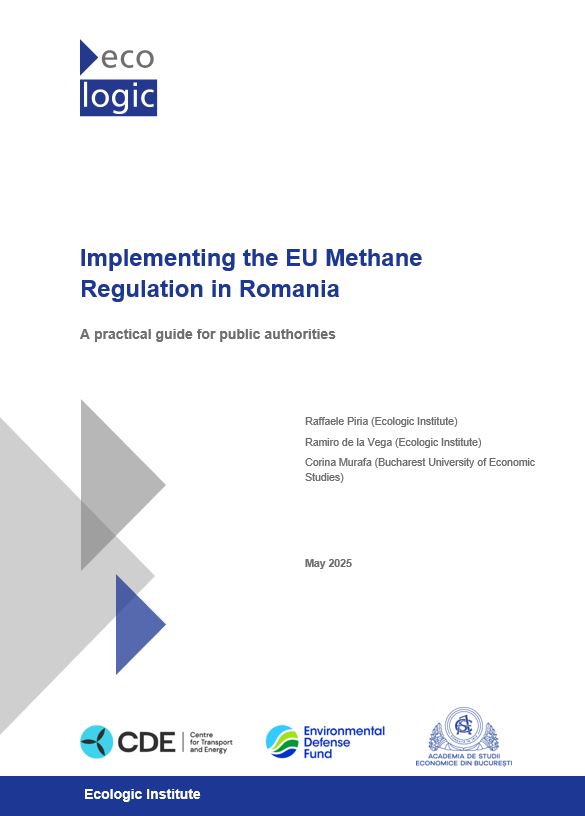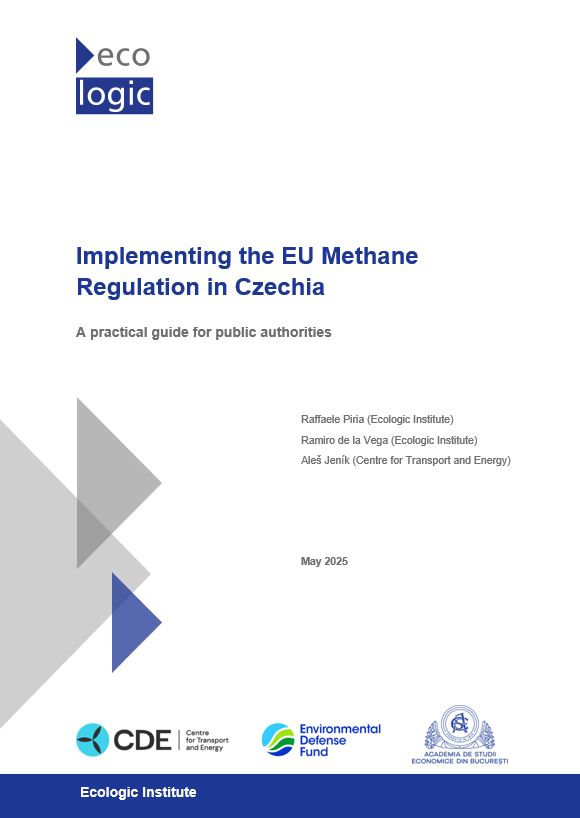The image is taken from Freepik.com
Methane, a potent greenhouse gas with a short-term global warming potential significantly higher than CO2, contributes to about 30% of global warming. Tackling methane emissions is critical for the EU to meet its climate targets for 2030. The EU Methane Emission Regulation (EU-MER), which became effective in 2024, is a key tool to achieve these reductions. However, countries like Romania and Czechia face significant implementation challenges, including institutional and interpretation capacities, and limited collaboration between stakeholders.
To support these efforts, a consortium comprising Ecologic Institute, Bucharest University of Economic Studies (ASE), Centre for Transport and Energy (CDE), and Environmental Defense Fund Europe (EDF) is conducting a project that seeks to accelerate methane reductions in Romania and Czechia by enhancing the implementation of the EU-MER. The project is supported by the European Climate Initiative (EUKI) launched in 2017 by the German Federal Ministry for Economic Affairs and Climate Action.
The project mobilises governmental bodies, businesses, and civil society organisations in both countries to take action in reducing methane emissions through a variety of initiatives. It strengthens governmental capacity through training, independent reporting reviews, and the integration of cutting-edge tools like satellite-based emissions' analysis. It fosters dialogue between government agencies, fossil-fuel operators, and civil society. It equips civil society organisations with advocacy frameworks, user-friendly data tools, and capacity-building workshops, empowering them to influence policy. For businesses, the project creates tailored case studies to encourage investments in methane mitigation technologies, targeting both fossil fuel operators and institutional investors.
By addressing capacity, fostering collaboration, and enhancing data-driven decision-making, the project ensures effective methane mitigation, paving the way for reduced emissions and improved climate outcomes in both countries.





